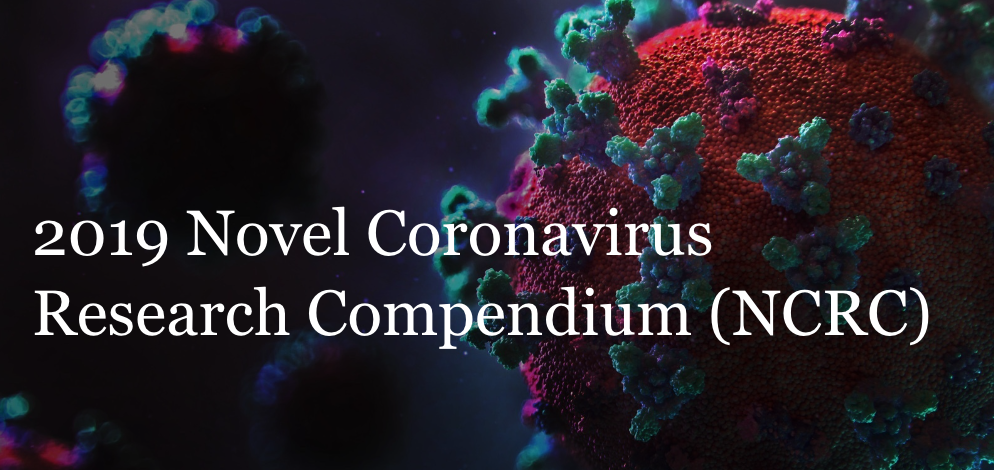About NCRC
The 2019 Novel Coronavirus Research Compendium (NCRC) is a centralized, publicly available resource that rapidly curates and reviews the emerging scientific evidence about SARS-CoV-2 and COVID-19. Our goal is to provide accurate, relevant information for global public health action by clinicians, public health practitioners, and policy makers.
Back to NCRC's group pageSummary
The 2019 Novel Coronavirus Research Compendium (NCRC) is a centralized, publicly available resource that rapidly curates and reviews the emerging scientific evidence about SARS-CoV-2 and COVID-19. Our goal is to provide accurate, relevant information for global public health action by clinicians, public health practitioners, and policy makers.
We prioritize original, high-quality research for public health action and papers receiving significant press, regardless of quality.
As the pandemic unfolds, there has been a rapid proliferation of literature on SARS-CoV-2 and COVID-19. Reliable and rapidly curated evidence is needed to inform the public, programs, policy, and research.
Our endeavors have been covered by Science, Wired, STAT News, CNN, Buzzfeed, and the JHSPH Magazine.
Evaluation model
Working alongside informationists at the Johns Hopkins Welch Library, we developed and maintain a list of key search terms for our eight focus areas. Using these, we scour PubMed and preprint servers (MedXriv, BioXriv, and SSRN) for papers. Papers are divided among eight teams, led by topical experts in ecology & spillover, mathematical modeling, clinical presentation & prognostic risk factors, epidemiology, diagnostics, vaccines, non-pharmaceutical interventions, and pharmaceutical interventions.
Teams sort incoming abstracts and decide whether they believe the paper will bring new and key information to inform clinicians, public health practitioners, and policy makers. In addition to selecting key articles from our search results, we keep our eyes on the press and social media to see what papers are trending.
For each paper selected into the compendium, our teams summarize the setting, population, results, strengths, limitations of the paper, and value added. At the end, we write our short take of the paper’s key finding(s), significance, and reliability.
PReF
Sciety uses the PReF (preprint review features) descriptors to describe key elements of each Group's evaluation activities, helping readers to interpret and compare their evaluations. Learn more.
- Review requested by
- Non-authors
- Reviewer selected by
- Editor, service, or community
- Public interaction
- Yes
- Inclusion of author response
- YNo
- Decision
- None
- Review coverage
- Complete paper
- Reviewer identity known to
- Editor or service
- Competing interests
- Checked
People
The NCRC is an effort by more than 50 faculty, fellows, alumni, and students from the Johns Hopkins Schools of Public Health, Johns Hopkins School of Medicine, and other institutions globally.
Experts work in eight teams to summarize the papers selected into the compendium, describe its value added based on what is already known about SARS-CoV-2 and COVID-19, and write a summary of the key findings relevant for action or practice. When we decide to include an article that was authored by someone within the NCRC, we assign it to a reviewer without current or past professional collaborations with that author.
Read more about NCRC.
Content license
Reproduced with permission of the Johns Hopkins Bloomberg School of Public Health, Baltimore, MD.
